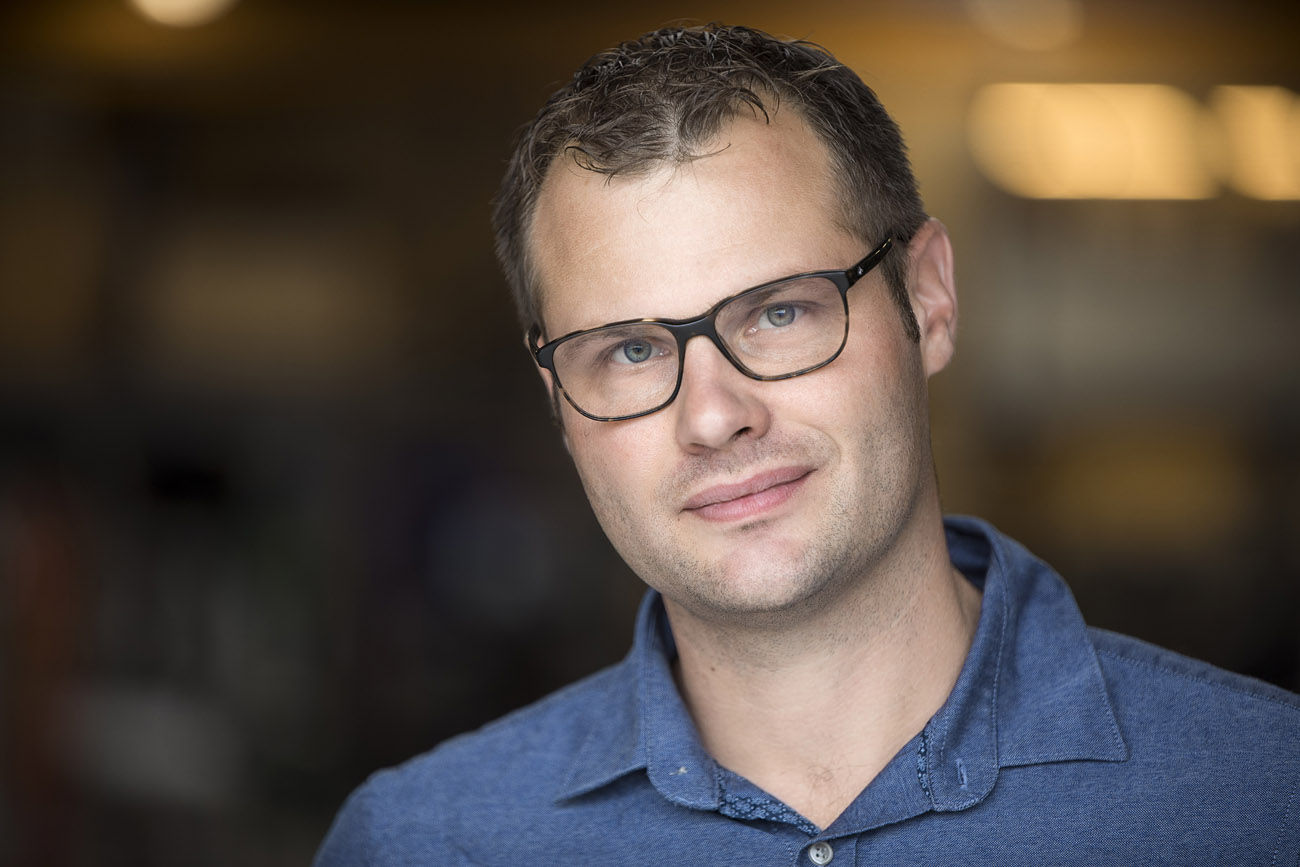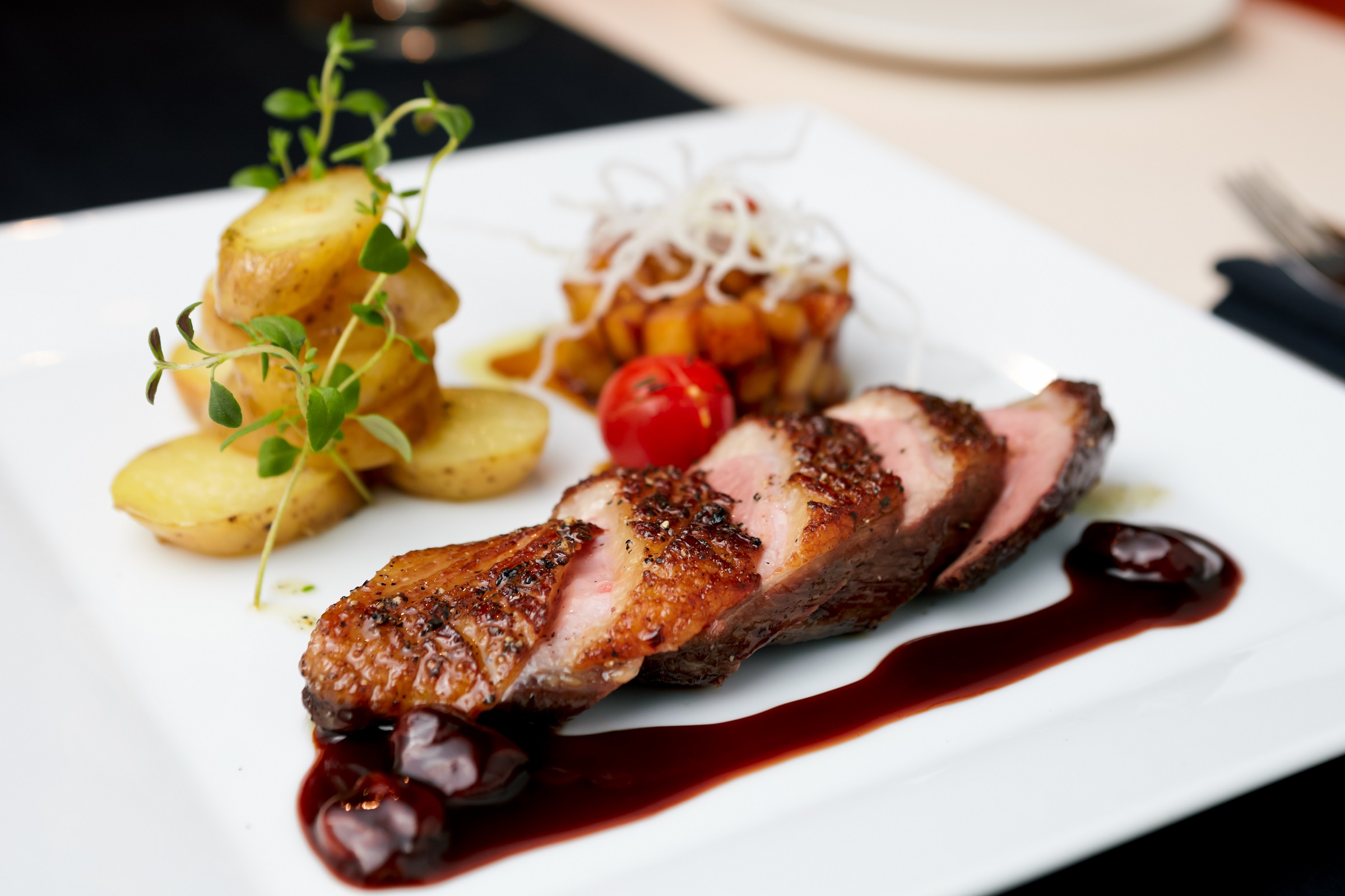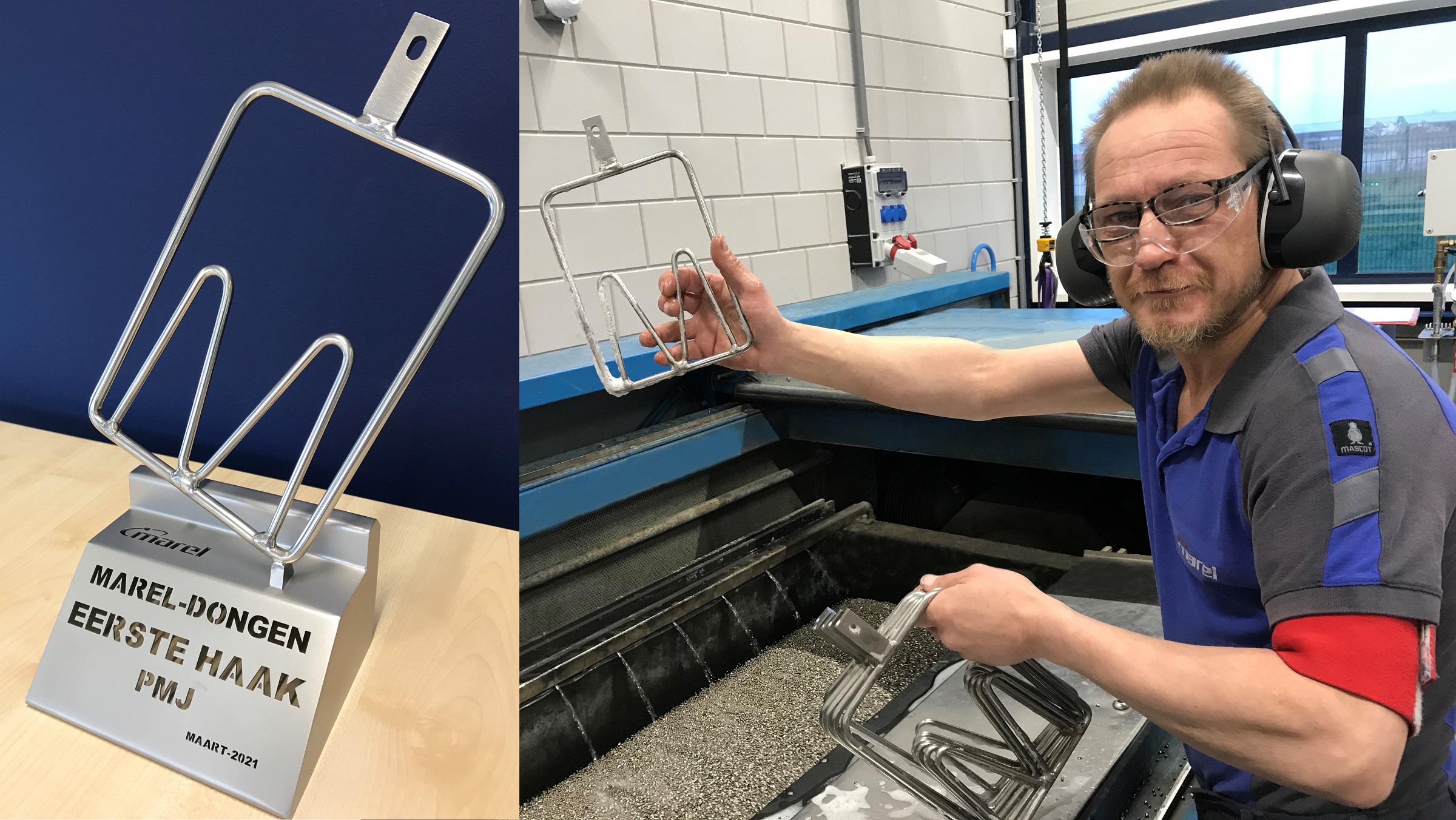Now is the time to introduce our automated solutions in China.

Bas van der Veldt
Managing Director PMJ

With the acquisition of duck specialist PMJ, Marel has obtained the knowledge, specialism and machinery to put more focus on the global duck processing market. PMJ’s managing director Bas van der Veldt talks about the worldwide duck meat market and what the combined forces of both companies will bring.
PMJ concentrates entirely on duck and geese processing and therefore, their systems and full-line solutions feature advanced duck-specific technology. A PMJ eviscerator for ducks offers a unique performance in extracting heart, gizzards and liver almost perfectly from the carcass, without damaging the giblets. In addition, it completely separates the viscera pack from the product and presents it to the veterinary inspector in a separate tray. For Marel, such duck-specific solutions are distinctive additions to the portfolio.
Bas van der Veldt says, “PMJ focuses entirely on duck processing, while for Marel, the duck industry is not their core business. We now have technical, supply chain, sales and service people from Marel and PMJ together, looking under each other’s hood. The first quick win we’ve achieved is the production of a duck processing shackle in Marel’s manufacturing facility in Dongen. We used to have quite some challenges with outsourcing this piece of equipment, but using the expertise of Marel’s supply chain, we are able now to solve this issue in-house.”
At the moment, the first results of the cooperation are already visible in joint trajectories to serve customers around the world, such as in Turkey and Russia.

Globally, China is by far the most important duck processing market. 70% of the global production takes place there, while consumption is even higher in percentage. After all, many duck processors in the world export a considerable part of their duck products to China.
“Now that we are together, PMJ and Marel want to map out the Chinese market and then penetrate it. But that is not a process that is completed within a year. A clear strategy must be formulated for this.
PMJ was quite active in other Asian countries such as South Korea and Thailand. It is very challenging to gain a foothold in Asia with Western technologies and Western prices. And that is all the more true for China. There are many local parties there for scalding, plucking and waxing. We’ll even have to beat the local blacksmith who fabricated some special machine.”
Bas van der Veldt continues, “The very low labor costs in those countries used to be another obstruction for automation, so cheap manual processing was predominant until recently. All that is changing now, also in China, with higher wages and higher welfare, and people who no longer want to work in slaughterhouses. Now is the time to introduce our automated solutions in China.”
Now is the time to introduce our automated solutions in China.

Bas van der Veldt
Managing Director PMJ
Did you know that Chinese consumers love to eat duck feet, tongues (which are thin slices of 7 grams), organs and rinsed intestines? And that the pre-stomach with the esophagus attached, which is cleaned and marinated, is served as a snack? These products have a high value in the Chinese market, and so duck processing needs a totally different processing approach in China than in other parts of the world. At Marel/PMJ we fully understand that these are important products, and we consider it a challenge to ensure the appropriate production.

In Europe, France, Hungary and Poland are the most important duck meat producing countries. While the rest of the world is breeding mainly Peking duck for meat, European plants will also process many Barbary ducks, also called Muscovy ducks, renowned for their plump, firm meat.
Unlike Peking ducks, that are processed at 6 weeks old, Barbary ducks are grown until 12 to 14 weeks. Males and females feature a considerable weight difference, varying from 2,5 kilos to 5 kilos. At this age, Barbary ducks are more difficult to process because of the feather adhesion and the further developed bone structure. “With our PMJ solutions, however, we succeed in processing a mixture of males and females with different weights and sizes on one single line,” says Bas van der Veldt.
“In Eastern European countries such as Hungary and Poland, you’ll find combined geese / duck processing lines. There too, our PMJ lines process a mixture of birds, from Peking duck of about 3 kilos live weight to geese of 9 kilos. It’s easy to adjust a number of basic parts of the eviscerator, such as the spoon and the leg spreader. These are quick change-over systems that will take about fifteen minutes of work to switch, allowing processors to make fully combined lines with a small conversion. When such lines process ducks one day and geese the next day, a changeover can happen during the cleaning time, which makes combined processing profitable in this way.”
“For somewhat smaller processors, we also have eviscerators and other machinery to handle game and other poultry. Such processors simply switch three times a day between small turkeys, geese, quails, pheasants, ducks and wild ducks. Such applications exist around the world, from Canada to Asia, with a relatively low processing speed.”
Bas van der Veldt concludes, “I’m convinced that with the knowledge and skills of our employees we have the flexibility and innovative power to serve the global duck market with highest-quality, sustainable processing systems and service.”

Egbert Joosten, founder of PMJ and Bas van der Veldt, Managing Director of PMJ.
Egbert Joosten started the PMJ company in 1998, dedicated to the design and manufacturing of duck processing equipment. The aim was to reach high capacities in every step of the process and achieve a significant increase in quality and yield. The PMJ company built its solid reputation on break-through innovations and tailor-made solutions created with and for duck processors worldwide.
With over 25 years of dedication to processing machinery, PMJ evolved from being a one-man family-owned business to a global operating company widely recognized as the ultimate specialist and provider of full range high-tech waterfowl processing solutions.
Throughout its existence, PMJ’s prime focus has been improving their customers' processes by continuous innovation. As waterfowl is very specific in anatomy, with various end products to result from the process, developing specific applications is the strength of PMJ. This resulted in a wide product portfolio, including state-of-the-art equipment. PMJ offers full range solutions for capacities from 500 to 7,000 products per hour, from live bird handling to grading and packing. Apart from the duck and geese processing industry, PMJ is also active in other niche markets like game processing.
News
Get in touch
Our dedicated team is here to help and answer any questions you may have. Please complete the form, and we’ll get back to you as soon as possible. We look forward to hearing from you.